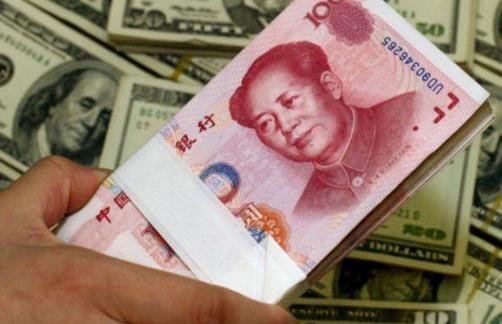新华社英文版喊话:恶意做空人民币将受法律严惩
- 发布时间:2016-01-24 10:09:51 来源:中国经济网 责任编辑:张少雷
新华社在一篇评论文章中称,随着中国央行采取措施来稳定人民币汇率,一些试图做空人民币的“激进”投机客将遭遇巨大损失。

新闻配图
新华社在一篇评论文章中称, 随着中国央行采取措施来稳定人民币汇率,一些试图做空人民币的“激进”投机客将遭遇巨大损失。
鲁莽投机和恶意做空将面临更高的交易成本甚至可能是严重的法律后果,中国政府试图改善市场监管机制和法律体系。
中国政府拥有充足的资源和政策工具来确保经济形势处于控制之下,并且应对任何外部挑战。
该评论来自最新刊发的新华社英文评论,结尾部分强调做空人民币的投机客将遭遇巨大损失,受到法律严惩。
以下为新华社全文:
Commentary: Chinese economic transition testing global investors' wisdom, courage
Jan. 22, 2016 (Xinhua) -- As the Chinese economy is undergoing profound restructuring and transition, international investors seem to be split in their judgment about the prospects for China's capital market.
Some people believe that the Chinese capital market is experiencing a major crisis, of which they try to take advantage with speculative actions and even vicious shorting activities.
The latest example is that some radical speculators tried to short sell the Chinese currency yuan, which has been depreciating against the U.S. dollar recently. However, with the Chinese monetary authority taking effective measures to stabilize the value of the yuan, those speculators are expected to suffer huge losses.
Meanwhile, many other investors see new opportunities in the transformation of the Chinese economy.
According to data from the London-based consulting firm Preqin Ltd, in 2015, global venture capital made 1,555 investments in China's startups with a total worth of 37 billion U.S. dollars, up 147 percent over the previous year, showing the investors' confidence in China's pro-innovation policy and business-friendly environment.
In a mature market economy, both speculative shorting and long-term investment are free choices of investors, and therefore should not be labeled as "right or wrong" or "good or bad."
But given the unique nature of the Chinese economy, currently the world's second largest, it should be fair to say that the choices made on China often reflect an investor's wisdom and courage.
As an old Chinese saying goes: To catch a big fish, one must cast a long line. The ancient Chinese wisdom fits the current Chinese economic situation well.
Many leading economists and scholars have pointed out that while China's economic restructuring is a challenging and arduous mission and the transitional period could be lengthy and painful, China is at no risk of a recession and the current 6.9 percent economic growth rate is still good enough to sustain the country's long-term prosperity.
Meanwhile, with the Chinese government actively pushing forward a series of fundamental reforms and supporting innovation-based business startups, both domestic entrepreneurs and foreign investors are expected to benefit from the economic restructuring process.
For example, the government has spared no efforts to cut excessive production capacity, boost domestic consumption and encourage the development of the service sector. It has also granted more market access to private capital and foreign investment.
The latest report from the American Chamber of Commerce in China showed that last year nearly two thirds of its member companies made profit in China, and three quarters saw good investment returns. The report also found that most of the member companies were optimistic about the future growth of the Chinese market, and over 90 percent of them viewed innovation as the key to their future success in China.
Asmart, far-sighted investor would seize the opportunity arising from China's economic restructuring, and achieve a win-win outcome by investing in China's future and reaping the fruits of China's reform and robust new economy.
As for those who want to bet on the "ultimate failure" of the Chinese economy, they should look back at the past four decades, which witnessed China's growth from an underdeveloped economy into a global economic powerhouse through continuous reform and opening up.
They should also take into consideration the fact that the Chinese government has been constantly improving the country's market regulatory system and legal system. As a result, reckless speculations and vicious shorting will face higher trading costs and possibly severe legal consequences.
And just as proved in the yuan exchange rate case, the Chinese government has sufficient resources and policy tools to keep the overall economic situation under control and cope with any external challenges.








